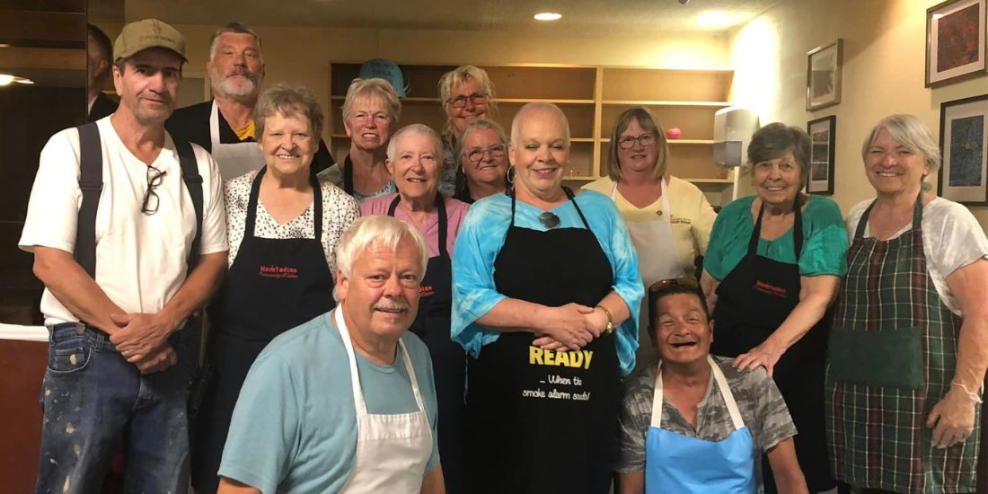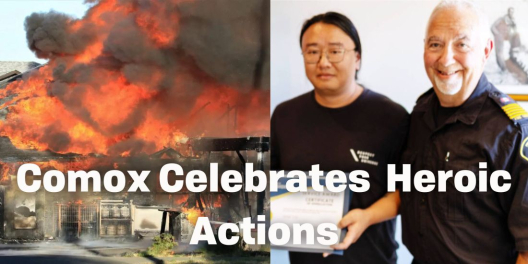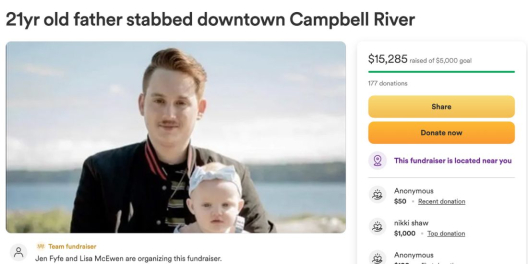Living in a community where everyone cares for their neighbours is ideal for most people.
According to the District Coalition to End Homelessness, Campbell River is a town that cares.
They have been receiving many emails lately from people who want to help those around them. The offers are from “self-described regular community members who were looking for ways to give back,” said Coalition Executive Director Stefanie Hendrickson to the Campbell River Mirror.
The catch is that many people want to help but are unsure how to do it.
“There’s just a sense of sort of helplessness when you look at such a complex challenge such as homelessness and people don’t really know how they can help,” she added.
But, as they say – where there’s a will, there’s a way.
“This is a very hopeful sign that the community is starting to become engaged and reach out more.”
To help guide communities on the best ways to confront growing housing and addiction issues at a grassroots level, the Coalition has just put together a resource to help give a bit of direction.
The document lists local initiatives you can get involved with and inspiring stories of locals who’ve taken direct action to make a difference.
One big step to making change is learning more about the root causes of local homelessness.
“A lot of folks they get a lot of their information from social media, and a lot of what you hear on social media simply doesn’t have a lot of truth to it,” she said. “we wanted to give folks like a place to start to really find evidence-informed and data-driven resources so that people can learn about the causes of homelessness.”
The Coalition hopes the document can become a community project in itself.
They’re not looking to preach about what you should or shouldn’t be doing. They want to hear from anyone with other ideas or projects worth sharing, so they can grow the resource over time and benefit everyone.
“We’re happy to consider additions or alterations to this document, and we hope that it will sort of evolve over time,” she said.
You can review the document here and contact the Coalition if you have other questions or want to contribute more resources.
Living in a community where everyone cares for their neighbours is ideal for most people.
According to the District Coalition to End Homelessness, Campbell River is a town that cares.
They have been receiving many emails lately from people who want to help those around them. The offers are from “self-described regular community members who were looking for ways to give back,” said coalition executive director Stefanie Hendrickson to the Campbell River Mirror.
The catch is that many people want to help but are unsure how to do it.
“There’s just a sense of sort of helplessness when you look at such a complex challenge such as homelessness and people don’t really know how they can help,” she added.
But, as they say – where there’s a will, there’s a way.
“This is a very hopeful sign that the community is starting to become engaged and reach out more.”
To help guide communities on the best ways to confront growing housing and addiction issues at a grassroots level, the Coalition has just put together a resource to help give a bit of direction.
The document lists local initiatives you can get involved with and inspiring stories of locals who’ve taken direct action to make a difference.
One big step to making change is learning more about the root causes of local homelessness.
“A lot of folks they get a lot of their information from social media, and a lot of what you hear on social media simply doesn’t have a lot of truth to it,” she said. “we wanted to give folks like a place to start to really find evidence-informed and data-driven resources so that people can learn about the causes of homelessness.”
The Coalition hopes the document can become a community project in itself.
They’re not looking to preach about what you should or shouldn’t be doing. They want to hear from anyone with other ideas or projects worth sharing, so they can grow the resource over time and benefit everyone.
“We’re happy to consider additions or alterations to this document, and we hope that it will sort of evolve over time,” she said.
You can review the document here and contact the Coalition if you have other questions or want to contribute more resources.
Living in a community where everyone cares for their neighbours is ideal for most people.
According to the District Coalition to End Homelessness, Campbell River is a town that cares.
They have been receiving many emails lately from people who want to help those around them. The offers are from “self-described regular community members who were looking for ways to give back,” said coalition executive director Stefanie Hendrickson to the Campbell River Mirror.
The catch is that many people want to help but are unsure how to do it.
“There’s just a sense of sort of helplessness when you look at such a complex challenge such as homelessness and people don’t really know how they can help,” she added.
But, as they say – where there’s a will, there’s a way.
“This is a very hopeful sign that the community is starting to become engaged and reach out more.”
To help guide communities on the best ways to confront growing housing and addiction issues at a grassroots level, the Coalition has just put together a resource to help give a bit of direction.
The document lists local initiatives you can get involved with and inspiring stories of locals who’ve taken direct action to make a difference.
One big step to making change is learning more about the root causes of local homelessness.
“A lot of folks they get a lot of their information from social media, and a lot of what you hear on social media simply doesn’t have a lot of truth to it,” she said. “we wanted to give folks like a place to start to really find evidence-informed and data-driven resources so that people can learn about the causes of homelessness.”
The Coalition hopes the document can become a community project in itself.
They’re not looking to preach about what you should or shouldn’t be doing. They want to hear from anyone with other ideas or projects worth sharing, so they can grow the resource over time and benefit everyone.
“We’re happy to consider additions or alterations to this document, and we hope that it will sort of evolve over time,” she said.
You can review the document here and contact the Coalition if you have other questions or want to contribute more resources.









